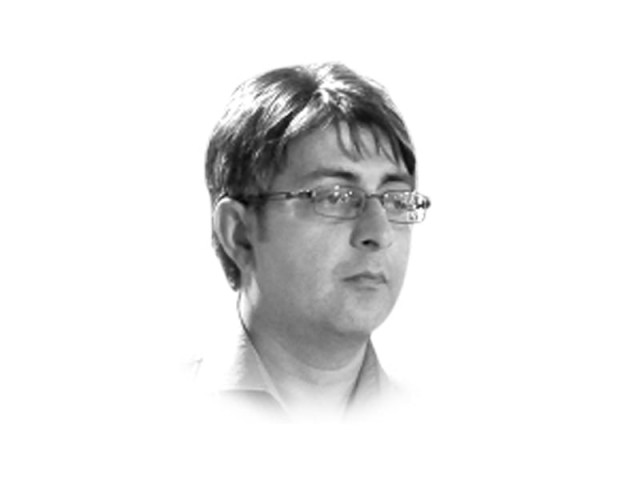Our state’s narrative on democracy
It is about time the state starts dismantling the anti-democracy narrative for the betterment of us all

The writer is an Islamabad-based TV journalist and tweets @FarrukhKPitafi
When Ayub Khan imposed martial law for the first time in this country, his eye-popping explanation for Pakistan not being suitable for democracy was telling. It had something to do with the weather. More recently, we have Pervez Musharraf telling us how democracy is not meant for us and we need an authoritarian set-up meant to carry out reforms. The reforms that he himself failed to introduce despite enjoying constitutional carte blanche for three years. It’s always about reforms and the ultimate nemesis — corruption. And yet we know how much serious we are as a nation about reforms. Have you ever asked yourself why we were known as a one-tranche country? And about corruption. Remember the people initially tried by the NAB immediately after the 1999 coup? Ever wondered how some of them later became members of Musharraf’s cabinet?
But this is precisely what the narrative is about in the Islamic republic. Narrative that is aired 24/7 from your favourite television station. The narrative that was there even before Imran Khan came to town. Before the second coming of Tahirul Qadri. The narrative that the politicians of the country are in essence, robber barons and the masses too ignorant so they keep electing the same exploiters. Some aspects of all this are true to some extent but pray what has the state done to change all that? Why is it that every influential politician you see today had something to do with one general president or another? And are politicians the only corrupt lot in the country?
The sad answer is no. Corruption is everywhere in this country. Literally everywhere. Why do people get their electricity metres fixed? Why do you not pay the taxes until they are obtained from you per force? It is the nature of our post-colonial state which failed to transform its extractive institutions into inclusive ones. A state, which is neither strong nor weak, but hard in nature. A state, which trusts its people only as much as the people trust it — hardly at all. Interestingly, while many think otherwise, in the past 13 years, this has started changing. Owing to the threat posed by terrorists, the state needs the support of the people and people need support of their state. Respect for democratic institutions then should have been inculcated. But it was not. The old narrative on democracy refuses to leave our mass media and our pundits, and keeps going on like a stuck gramophone.
Sadly, this is bound have complicated consequences. Take, for instance, the prolonged agitation in Islamabad. It threatens to return. Will the state once again have to divert all attention to securing the protestors at D-Chowk and forget about protecting our schools, our places of worship and workplaces? It is the very same narrative behind all this. The narrative that is about to give the state a serious headache during the fight against terror. The state needs all hands on the deck right now. Can it afford to be distracted?
And about our voting public, let us also be a bit open-minded. The voter is not as parochial or ignorant as you think. Even when the state did not know what was good for it and tried to get the religious-right get elected, the voters kept rejecting that option. While some in the political class might be apologists for terrorists, a negative influence found to a little extent in all segments of society, the voter has generally stayed clear of such propaganda. That is precisely why we do not see reactionary elements ruling the country. It is about time the state starts dismantling the anti-democracy narrative for the betterment of us all.
Published in The Express Tribune, January 10th, 2015.
Like Opinion & Editorial on Facebook, follow @ETOpEd on Twitter to receive all updates on all our daily pieces.















COMMENTS
Comments are moderated and generally will be posted if they are on-topic and not abusive.
For more information, please see our Comments FAQ